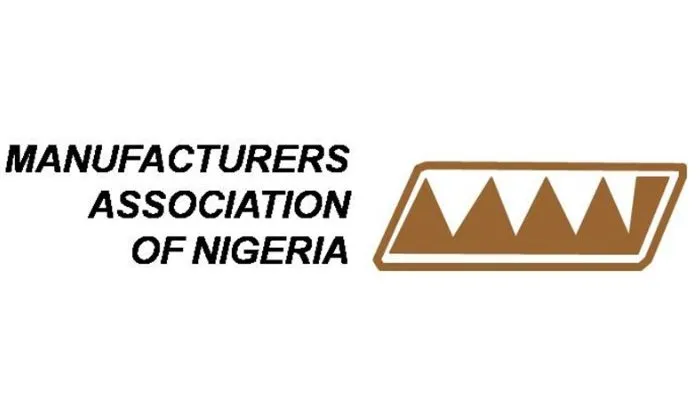Manufacturers have called for urgent measures to stop the exodus of multinationals from Nigeria, emphasising the need for a comprehensive industrial policy that promotes sectoral development, incentivises private investment and fosters inter-sector collaboration.
The manufacturers who spoke with LEADERSHIP Sunday, stressed the importance of attracting stable Foreign Direct Investment (FDI) focused on industrial and resource-based growth rather than short-term capital inflows.
The director-general of the Manufacturers Association of Nigeria (MAN), Mr Segun Ajayi-Kadir and the president of the Association of Small Business Owners of Nigeria (ASBON), Dr Femi Egbesola, said there is a need for an industrial policy to promote industrial development.
Industry leaders also urge the government to stabilise the economy, improve the ease of doing business, and implement intervention programs to support indigenous manufacturers.
Additionally, experts highlight that foreign exchange crises and unstable exchange rates are major barriers for multinationals, with challenges in repatriating dividends and accessing foreign currency significantly undermining investor confidence and motivating their exit.
Checks by LEADERSHIP Sunday revealed that Nigeria’s economic landscape has witnessed a significant shift since 2020, with some companies shutting down, relocating, or scaling down their operations in the country.
The trend, said to have been driven by economic hardships, fluctuating currency rates, and escalating operational costs, has resulted in substantial job losses and economic instability.
Notable companies that exited Nigeria were Standard Biscuits Nigeria Limited, NASCO Fiber Product Limited, Union Trading Company Nigeria Plc, and Deli Foods Nigeria Limited.
The exit of these companies from the Nigerian market was due to the impact of economic instability and other operational challenges.
Most of the businesses cited harsh economic conditions, unpredictable currency fluctuations, and soaring operational costs as key factors driving their decisions.
Commenting on the development, the director-general of the Manufacturers Association of Nigeria (MAN), Mr. Segun Ajayi-Kadir, called for an industrial policy to promote industrial development, incentivise private sector participation, and allow inter-sectoral engagement.
“Nigeria does not have an industrial policy; there is a need to have a policy that allows that sector to engage with other sectors and even guide its foreign relations.
“Nigeria has no business promoting hot money; you need to focus on Foreign Direct Investment (FDI); those that would remain in the economy, not flight-by-night businesspeople who stay in hotels.
“Nigeria must have a system that attracts people who are going to invest in industry, mining, who will beneficiate your raw materials and natural resources, and retain inclusive development for the economy,” he said.
Also speaking on this, the National President of the Association of Small Business Owners of Nigeria (ASBON), Dr Femi Egbesola, said the exit of multinationals has hurt many Small and Medium Enterprises (SMEs) and indigenous firms operating in the country, adding that the government must take urgent steps to stop the exit of transnational companies.
According to Egbesola, SMEs provide backward and forward integration services and also provide outsourcing and subcontracting activities to large international corporations.
Egbesola noted that SMEs create a common market for MNC players through outsourcing and subcontracting activities between them and larger corporations, noting that the interconnectivity of foreign firms with SMEs brings them together for practical integration.
Immediately, the MNCs folded up and left the country, he said, the SMEs also felt the impact, hence leaving them with a trail of lost jobs.
“MNCs have a large workforce of 6,000 to 10,000 in their production centers, and they also come with technological transfer of equipment and machines, so the exit of multinationals will see that their technology goes away with them.
“When these multinationals take their exit, the revenue the government generates from them in terms of taxes will no longer be there when they stop doing business, and this sends a signal to expatriates and international bodies that Nigeria is not a destination point to do business,” he stressed.
Egbesola suggested that the government should make the economy stable and address the ease of doing business by providing intervention programs for manufacturers and indigenous companies to support them from leaving the country.
He also urged the government to rejig economic policy holistically to see those to remove and reform to make the economy stable for business and attract FDIs.
Speaking with one of our correspondents, the managing director of Cowry Asset Management Company, Johnson Chukwu, explained that, a combination of foreign exchange crisis and unstable exchange rate had negatively impacted foreign investors’ sentiment to further participate in multinational investment drives in the country.
He noted that the repatriation of dividends hurts multinational companies on dollar-denominated investments, adding that MNCs’ exit was caused by difficulty in repatriating dividends and access to forex to meet import obligations.
He alluded that dollar-denominated investments from multinational companies are finding it hard to create value in the market, hence making it impossible for investors to repatriate dividends and access FX to meet import obligations. He blamed the combination of FX liquidity crisis and instability of the Nigerian foreign exchange market as the underlying causes of the downward trajectory.






